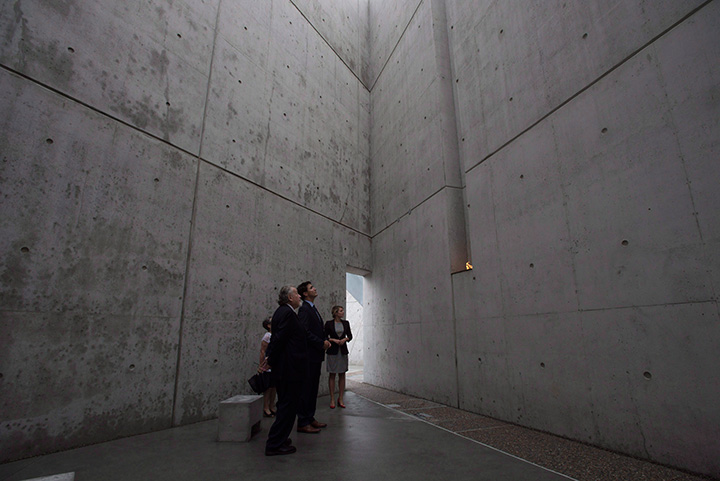No, the prime minister of Canada is not a Holocaust denier. And no, the federal government is not trying to remove the plight of Jews from the history books.

But no, it’s not excusable that a plaque at Canada’s new Holocaust monument didn’t specifically reference the six million Jews killed in one of the world’s greatest acts of evil — the Holocaust.
Bearing Justin Trudeau‘s name, the plaque said the National Holocaust Monument “commemorates the millions of men, women and children murdered,” and “serves as a reminder that we must be vigilant in standing guard against hate, intolerance and discrimination.”
After the plaque became an international mockery, the government, to its credit — specifically, Heritage Minister Mélanie Joly — moved swiftly to replace it with one that acknowledges the Holocaust as having targeted Jewish people.
It’s not enough to note that the Holocaust was tragic; anyone serious about understanding history has to recognize what its aim was, as well as why and how it happened.
This is essential to combat Holocaust denial, which is sometimes more nuanced than people think. The shrewder anti-Semites in our midst will admit that the Holocaust happened but qualify it by suggesting Jews weren’t the target, or that the victim count was much lower, or that starvation and disease rather than gas-induced executions were the culprits.
WATCH: Trudeau says anti-Semitism present in Canada during National Holocaust Monument unveiling

I’m not suggesting anyone in the government thinks this, but a monument to the Holocaust needs to be exceptionally clear about the inseparable relationship between anti-Semitism and the Holocaust in order to combat these pervasive sentiments.
Several commentators have suggested this flap is particularly embarrassing on account of it being Trudeau’s second omission of Jews in a Holocaust statement (the first being his 2016 proclamation on International Holocaust Remembrance Day.)
Actually, this is the third such fumble. The controversy didn’t make news in Canada, but Trudeau’s tour of the Auschwitz-Birkenau concentration camp last year generated a stir in Israel when the prime minister left a message in the guest book that didn’t reference Jews.
WATCH: Liberals respond to criticism after Holocaust Memorial plaque removed

“Tolerance is never sufficient: humanity must learn to love our differences,” he wrote. “Today we bear witness to humanity’s capacity for deliberate cruelty and evil. May we ever remember this painful truth about ourselves, and may it strengthen our commitment to never again allow such darkness to prevail. We shall never forget. Nous nous souviendrons.”
I have no doubt his words are sincere. In fact, he was moved to tears during his tour of the space, reportedly. But this message, especially when compounded with the others, misses what the Holocaust means to the Jewish people in 2017.
- ‘Shock and disbelief’ after Manitoba school trustee’s Indigenous comments
- Canadian man dies during Texas Ironman event. His widow wants answers as to why
- Several baby products have been recalled by Health Canada. Here’s the list
- ‘Sciatica was gone’: hospital performs robot-assisted spinal surgery in Canadian first
The Shoah — as it’s known in Hebrew — is about more than a society that doesn’t “love our differences” and certainly about something graver than mere intolerance. It was anti-Semitism that escalated to a state-sponsored attempt at extermination of the Jewish population.
Trudeau, according to his press secretary, unequivocally recognizes the loss of Jewish lives in the Holocaust.
“The Holocaust memorials that he has visited around the world are a dark and brutal reminder of the six million Jewish lives lost during the Holocaust,” she told me. “We must never forget all the families that were torn apart because of the hatred and intolerance directed at the Jewish community, and all other victims of Nazi brutality. We know that anti-Semitism is not just a thing of the past in Canada. It is our duty to stand up every day against all forms of discrimination, racism, and anti-Semitism in our communities.”
There is a learning opportunity for all Canadians here to understand not only the historic timeline of the Holocaust, but the ongoing threat of Holocaust denial and Holocaust indifference. The latter may lack the malice and anti-Semitism of the former, but is still a major problem.
In 2011, I took part in a week-long study trip to Israel at Yad Vashem, the country’s national Holocaust museum and research centre. It was an eye-opening experience for more reasons than I can list here, but one takeaway was understanding the place the Holocaust holds in society today, and not just as a chapter in the history books.
The further removed we are from the Holocaust chronologically, the harder it is to get young people — even young Jews — to care about it, I learned.
The survival of the Jewry after facing eradication has turned into a thriving so successful that the current generation has lost the sense of struggle.
As a gentile, I’ve lived my life without the pain that lives in Jewish history. I’ve never needed to say “never again” to ensure my own survival.
But even so, I understand the danger of Holocaust indifference. So surely the federal government can as well.
Andrew Lawton is host of The Andrew Lawton Show on AM980 in London and a commentator for Global News.








Comments